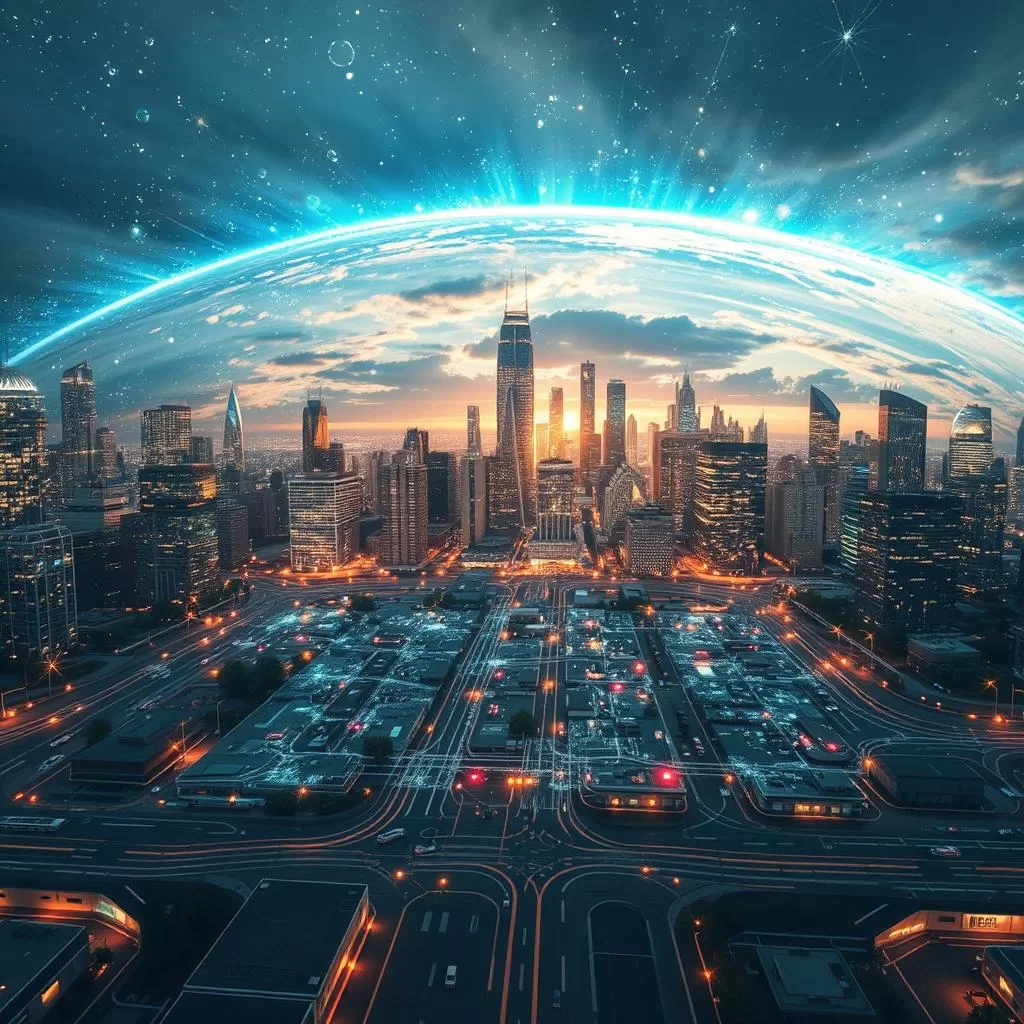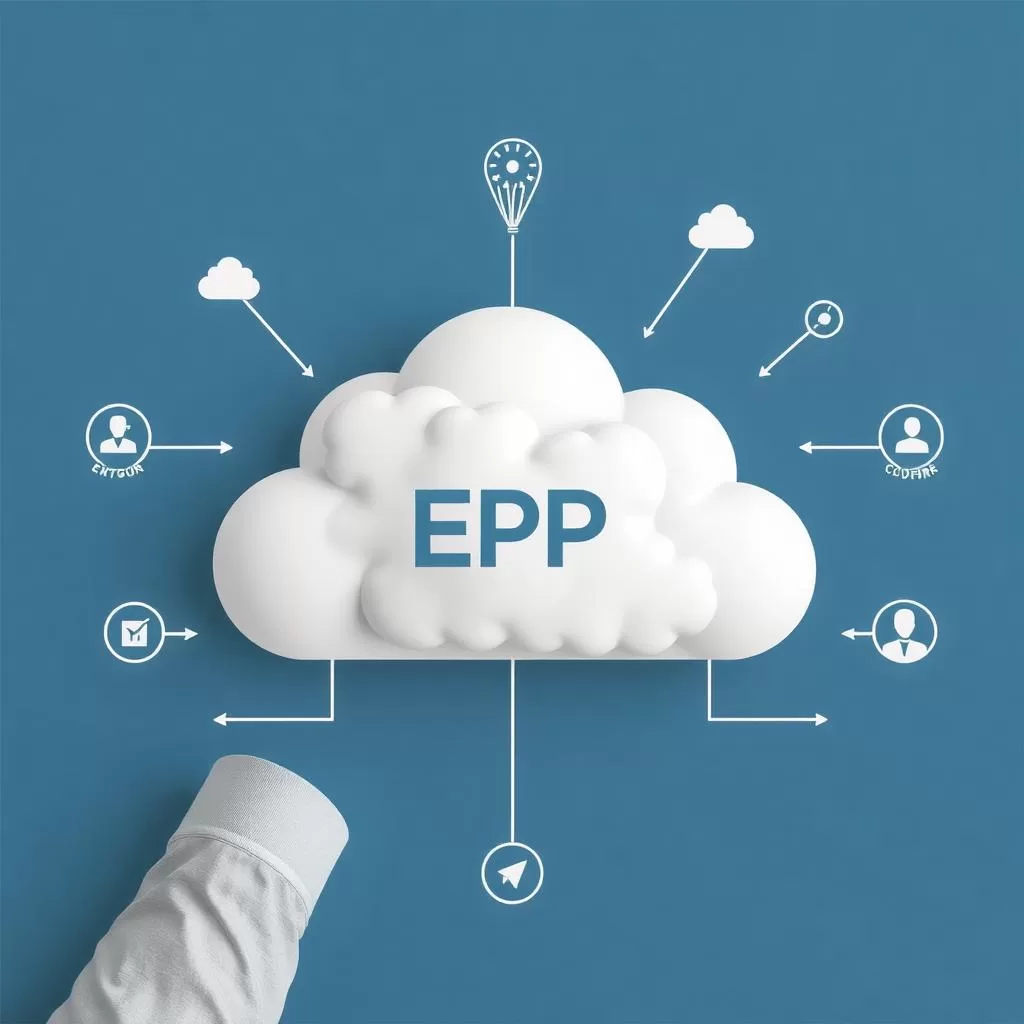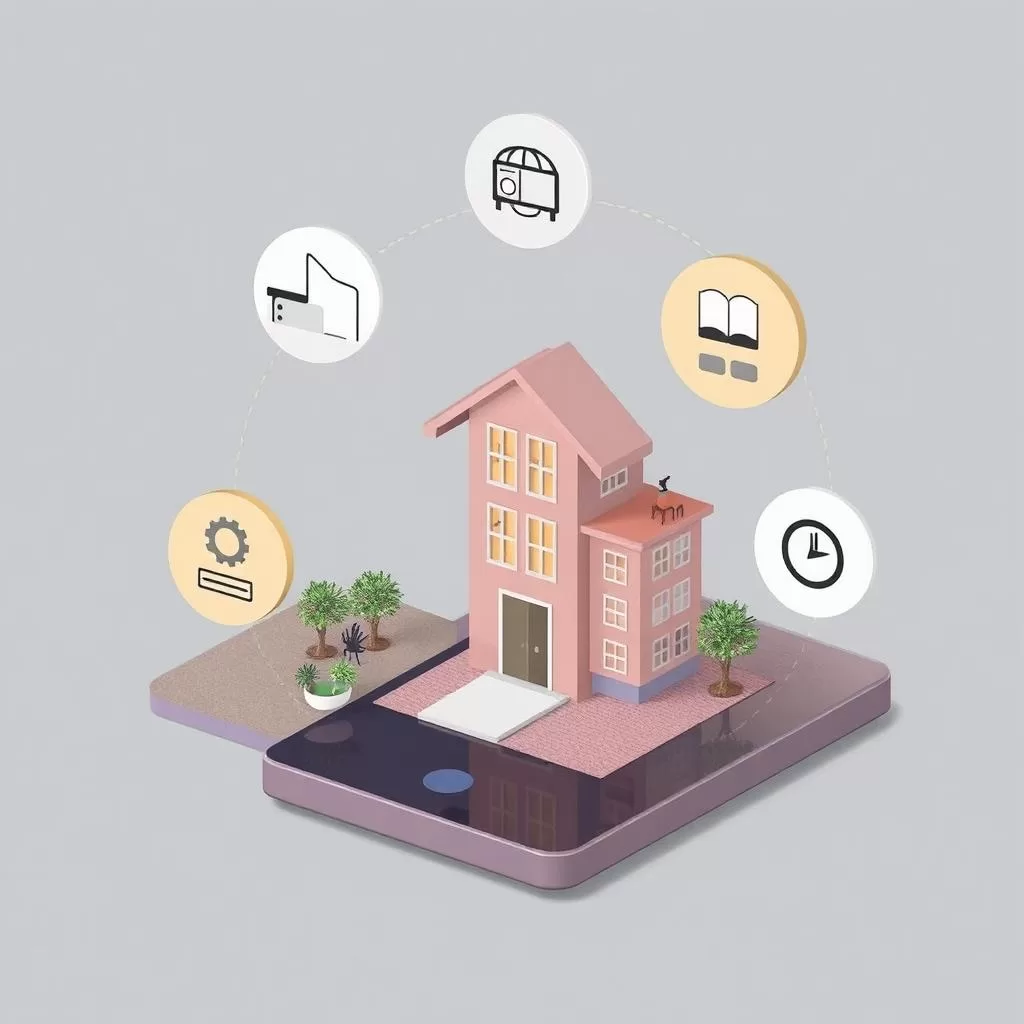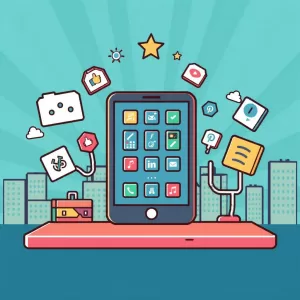Emerging Technologies in 2025 That Will Shape the Future
Technology is advancing faster than ever, reshaping our world in ways once thought impossible. Emerging technologies in 2025—from Artificial Intelligence and 5G to Blockchain and Quantum Computing—are set to revolutionize how we work, connect, and innovate. These breakthroughs won’t just impact individual industries—they’ll redefine the future of business, healthcare, finance, and communication on a global scale.
By staying ahead of these innovations, businesses and individuals can leverage new opportunities and stay competitive.
What You’ll Learn in This Article:
- The top 10 emerging technologies in 2025
- How these innovations will impact businesses and society
- Future trends and real-world applications
Artificial Intelligence (AI) & Machine Learning
AI is revolutionizing healthcare, finance, cybersecurity, and marketing by making systems smarter and more efficient.
🔹 Emerging AI Technologies in 2025:
2025 will see AI evolve from a supporting tool to a central force across industries, driving innovation, efficiency, and personalization like never before.
✔ AI-Powered Automation in Businesses and Customer Service
AI is streamlining business operations by automating repetitive tasks, improving decision-making, and enhancing productivity.
In customer service, AI chatbots and virtual agents are becoming more human-like—handling complex queries, personalizing interactions, and delivering 24/7 support across multiple languages and platforms.
This reduces costs while improving customer satisfaction and brand loyalty.
✔ AI-Driven Fraud Detection in Banking & Fintech
AI is transforming fraud detection with real-time monitoring and intelligent analysis of financial transactions.
Using machine learning, banks and fintech companies can now detect suspicious behavior—like account takeovers, abnormal transfers, or synthetic identities—within seconds.
This proactive approach significantly reduces financial loss and builds greater trust in digital banking.
✔ AI-Enhanced Healthcare Diagnostics for Faster Disease Detection
In healthcare, AI is revolutionizing diagnostics by analyzing medical images, lab results, and patient data with incredible speed and accuracy.
Emerging AI tools are helping doctors detect conditions like cancer, heart disease, and neurological disorders at earlier stages.
This means faster diagnoses, more personalized treatment plans, and improved patient outcomes—especially in under-resourced healthcare systems.
💡 For example, AI-powered chatbots handle customer support for businesses.
5G & Next-Gen Connectivity
5G is enabling ultra-fast internet speeds, improving connectivity for IoT, smart cities, and autonomous vehicles.
🔹 5G’s Impact in 2025 as an Emerging Technology:
✔ Faster Streaming, Gaming, and Cloud Services
5G delivers lightning-fast download and upload speeds, enabling ultra-HD video streaming with zero buffering and seamless online gaming experiences.
Cloud-based services benefit greatly, allowing users to access high-performance applications, files, and platforms in real time—without relying on powerful local hardware.
This creates smoother, more immersive entertainment and productivity experiences for users everywhere.
✔ Improved Remote Work & Telemedicine Solutions
With 5G, video conferencing, real-time collaboration, and virtual workspaces become more reliable and lifelike.
Employees can work from virtually anywhere without lag, enhancing global productivity and reducing the digital divide.
In healthcare, 5G empowers telemedicine with stable, high-resolution video consultations, and even supports remote surgeries through robotics and real-time data transmission—saving lives in remote or underserved areas.
✔ Autonomous Vehicles Powered by Real-Time Data
Self-driving cars rely on constant, split-second communication with other vehicles, traffic signals, and sensors.
5G enables this by transmitting massive amounts of data with ultra-low latency, allowing autonomous vehicles to react instantly to road conditions and avoid collisions.
This paves the way for smarter traffic management, safer roads, and the broader rollout of connected transportation systems.
💡 For example, 5G-powered drones for faster deliveries and surveillance.
Blockchain & Decentralized Finance (DeFi)
Blockchain is transforming banking, cybersecurity, and supply chains by ensuring transparency and security.
🔹 Blockchain Trends in 2025:
✔ Decentralized Finance (DeFi) Reducing Reliance on Traditional Banks
DeFi platforms are transforming financial services by removing intermediaries and enabling peer-to-peer lending, borrowing, and trading.
With greater accessibility, lower fees, and global reach, DeFi empowers individuals to control their financial futures—especially in regions underserved by traditional banking systems.
Smart algorithms handle transactions securely, and blockchain’s transparency ensures trust without the need for centralized institutions.
✔ Smart Contracts Automating Business Agreements
By 2025, they are widely used to automate tasks like insurance payouts, real estate deals, supply chain processes, and employee agreements. As a result, they reduce human error, eliminate delays, and boost security by ensuring terms are enforced automatically once conditions are met.
✔ NFTs (Non-Fungible Tokens) Reshaping Digital Ownership
In 2025, they are being used to verify ownership of a wide range of digital assets—including music, videos, fashion items, educational credentials, and even virtual land.
Furthermore, brands, creators, and individuals are leveraging NFTs to monetize content, prove authenticity, and unlock exclusive digital experiences.
This redefines intellectual property rights and introduces new revenue streams in the digital economy.
💡 Example: Bitcoin and Ethereum continue to disrupt traditional finance.
🔗 Related: The Future of QR Code Payments
Quantum Computing one of key Emerging technologies in 2025
Quantum computing is set to revolutionize industries by solving complex problems faster than classical computers.
🔹 How Quantum Computing Will Impact 2025:
✔ Faster Data Processing & Cryptography
Quantum computers handle complex calculations exponentially faster than traditional machines.
This will revolutionize data analysis, optimize logistics, and solve problems too advanced for classical systems.
In cybersecurity, quantum algorithms will challenge existing encryption standards—prompting a shift toward quantum-safe cryptography to secure sensitive data and protect digital infrastructure.
✔ Accelerating Drug Discovery in Healthcare
Quantum computing is set to transform healthcare by simulating molecular structures with extreme precision.
Pharmaceutical companies can identify promising drug candidates, test chemical reactions, and predict treatment outcomes—significantly cutting development time and cost.
This leads to faster cures and more targeted therapies for diseases like cancer, Alzheimer’s, and rare genetic conditions.
✔ AI-Powered Simulations for Climate Change Predictions
By combining AI and quantum computing, researchers can create ultra-accurate climate models and simulations.
These tools help scientists understand long-term environmental trends, forecast extreme weather events, and develop sustainable solutions.
Governments and organizations can then make more informed decisions to combat climate change and protect ecosystems.
💡 For example, Google & IBM are racing to build the most powerful quantum computers.
Augmented Reality (AR) & Virtual Reality (VR)
AR & VR are transforming gaming, education, healthcare, and remote work.
🔹 Future AR/VR Trends:
✔ Metaverse Applications for Virtual Collaboration
The metaverse is revolutionizing how teams connect, collaborate, and innovate—regardless of location.
Now, employees can work together in immersive virtual environments that mimic real offices and enable lifelike meetings. Additionally, tools like virtual whiteboards and avatar-based interactions support interactive brainstorming. As a result, AR/VR collaboration is boosting productivity and reducing the need for business travel.
✔ AI-Powered VR Training & Simulations in Industries
VR combined with AI is creating hyper-realistic training environments across industries like healthcare, aviation, manufacturing, and emergency response. With these tools, workers can safely practice complex tasks and simulate high-risk scenarios in a virtual space. Moreover, they receive real-time feedback, allowing for continuous improvement.
As a result, organizations benefit from faster skill development, improved knowledge retention, and lower training costs.
✔ AR-Powered Shopping for Enhanced E-Commerce Experiences
AR is transforming online shopping by letting users preview products in real-world settings.
For example, shoppers can virtually try on clothes or see how furniture fits in their homes.
As a result, they enjoy a more interactive and confident buying experience.
Retailers that adopt AR are seeing higher conversion rates, fewer returns, and stronger customer engagement.
💡 For example, Apple Vision Pro & Meta Quest lead the next wave of AR/VR innovation.
Internet of Things (IoT) & Smart Devices
IoT is expanding with AI-driven automation, making homes, businesses, and cities smarter and more efficient.
🔹 IoT Trends in 2025:
The integration of AI and IoT is set to redefine industries and everyday life, offering new levels of connectivity, automation, and efficiency.
✔ Smart Home Automation with AI-Driven Assistants
AI-powered assistants are turning homes into smarter, more intuitive environments.
With simple voice commands or automated routines, smart devices can control lighting, temperature, security, and appliances. In addition, AI learns from daily habits and adjusts settings based on time, weather, or even mood. As a result, smart homes offer greater convenience, energy efficiency, and security—making them a standard feature by 2025.
✔ IoT in Healthcare for Remote Patient Monitoring
IoT devices are revolutionizing healthcare by enabling continuous, real-time monitoring of patient health, even from remote locations.
Wearables track vital signs like heart rate, blood pressure, and glucose levels, sending data directly to healthcare providers.
This remote monitoring allows for quicker intervention in case of medical anomalies and reduces hospital visits, making healthcare more accessible and efficient.
✔ Smart Factories Using IoT for Automation & Efficiency
In the manufacturing sector, IoT-driven smart factories are setting the stage for the next industrial revolution.
Connected machines and sensors monitor production lines, identify inefficiencies, and predict maintenance needs before breakdowns occur.
This leads to reduced downtime, optimized resource allocation, and better-quality control, making manufacturing processes more efficient, sustainable, and cost-effective.
💡 For example, Tesla’s smart cars use IoT & AI for real-time navigation.
🔗 Related: How AI is Revolutionizing Mobile App Development
Biotechnology & Gene Editing
CRISPR and other gene-editing technologies are revolutionizing medicine, agriculture, and disease treatment.
🔹 Biotechnology Innovations in 2025: One of the top emerging technologies
✔ Genetic Modifications to Prevent Hereditary Diseases
Advances in CRISPR and gene editing technologies are enabling scientists to make precise genetic modifications that can prevent hereditary diseases before birth.
In 2025, we will see these tools applied to treat genetic disorders such as cystic fibrosis, sickle cell anemia, and muscular dystrophy, offering patients the chance for healthier lives without lifelong treatments.
Ethical debates and regulations are evolving alongside these innovations, ensuring safe applications and long-term benefits.
✔ Lab-Grown Meat & Sustainable Agriculture
As the global demand for food grows, lab-grown meat is emerging as a sustainable alternative to traditional farming.
In 2025, lab-grown meat will be produced more efficiently, reducing the need for land, water, and livestock, while also cutting down greenhouse gas emissions from the agricultural sector.
Biotechnology also powers precision farming, where data-driven techniques enable farmers to optimize crop yield while minimizing pesticide use, water consumption, and environmental impact.
✔ AI-Driven Drug Discovery for Faster Treatments
The integration of artificial intelligence in biotech is accelerating the pace of drug discovery, enabling scientists to identify new drug compounds in a fraction of the time it took before.
AI algorithms can analyze vast amounts of medical data, genetic information, and chemical properties to predict the effectiveness of treatments and personalize them to individual patients.
By 2025, this will lead to faster approval of treatments for diseases such as cancer, Alzheimer’s, and rare genetic conditions, giving patients quicker access to life-saving therapies.
💡 For example, AI is accelerating cancer research and personalized medicine.
Robotics & Automation
AI-powered robots are enhancing manufacturing, logistics, and healthcare by improving productivity and reducing costs.
🔹 Emerging Robotics Technologies in 2025:
✔ AI-Powered Factory Automation
AI-driven robots are revolutionizing factory automation by taking on complex tasks such as assembly, quality control, and packaging. Moreover, these robots can work alongside human employees, boosting both productivity and safety on production lines. With advanced machine learning algorithms, they adapt to new tasks, manage delicate operations, and respond to real-time changes. As a result, manufacturers see greater efficiency, optimized workflows, and significant cost reductions.
✔ Healthcare Robots Assisting in Surgeries
In healthcare, robotic surgery assistants are becoming indispensable tools for surgeons.
AI-powered robots, equipped with precise tools and enhanced vision systems, can perform minimally invasive surgeries with extreme accuracy, reducing human error and recovery time for patients.
Additionally, robots will assist in rehabilitation, monitoring patient conditions, and even providing remote surgical assistance through telepresence, ensuring high-quality care in remote areas or emergency situations.
✔ Delivery Drones & Self-Driving Vehicles
Delivery drones and self-driving vehicles are set to revolutionize the logistics industry by 2025.
Drones will deliver packages in urban and rural areas, speeding up delivery times and reducing traffic congestion.
Self-driving vehicles will take transportation and delivery automation to the next level.
They will handle everything from food delivery to large-scale freight operations with minimal human intervention.
As a result, these vehicles will enhance efficiency, and reduce costs. Furthermore, it will lessen the reliance on human drivers in logistics and transport industries. These technologies will make urban infrastructure more sustainable, reduce emissions, and improve the overall convenience of everyday life.
💡 For example, Amazon is using robotics & AI to automate warehouses.
Cybersecurity & AI-Driven Threat Detection
With cyber threats rising, AI-powered security systems are crucial for protecting data and online transactions.
🔹 Emerging Cybersecurity Technologies in 2025:
✔ AI-Powered Threat Detection & Response
Artificial Intelligence is transforming cybersecurity by enabling real-time threat detection and instant response. As a result, AI systems continuously monitor networks, analyze user behavior, and detect anomalies—often spotting threats that human analysts might miss.
By automating responses, AI takes immediate action against cyber threats. For example, it can isolate infected systems, shut down vulnerable access points. Also, it will stop breaches before they escalate. As a result, it dramatically reduces the window of exposure to cyberattacks, helping organizations stay protected in real time.
✔ Biometric Authentication for Enhanced Security
Biometric technologies such as facial recognition, fingerprint scanning, and voice authentication are becoming mainstream.
These methods provide a more secure and user-friendly alternative to passwords, which are often vulnerable to theft or misuse.
In 2025, biometric authentication is becoming a standard across banking, healthcare, and consumer devices. As a result, users benefit from seamless and secure access control. Moreover, this technology significantly enhances digital identity protection, reducing the risks of fraud and unauthorized access.
✔ Quantum Encryption for Unbreakable Cybersecurity
Quantum encryption—particularly quantum key distribution (QKD)—offers a revolutionary level of security.
Unlike traditional encryption, which can eventually be broken by powerful computers, quantum encryption offers a new level of security.
It relies on the laws of quantum physics, making it virtually unhackable by today’s or even tomorrow’s standards.
As a result, in 2025, governments and high-security industries are rapidly adopting quantum technologies.
Their goal is to safeguard sensitive communications and future-proof critical data against threats posed by emerging quantum computers.
💡 For example, AI prevents cyberattacks & online fraud in banking apps.
🔗 Related: How AI is Transforming Cybersecurity
Renewable Energy & Sustainable Tech
The future is green, with advances in solar, wind, and battery technology making renewable energy more efficient.
🔹 Green Tech Trends in 2025:
✔ AI-Powered Smart Grids Optimizing Energy Use
Artificial Intelligence is making energy grids smarter and more efficient.
AI systems continuously monitor energy demand in real time.
As a result, they can adjust power distribution dynamically and seamlessly integrate renewable sources like solar and wind.
Moreover, by forecasting usage patterns, these smart grids optimize energy flow and reduce unnecessary waste.
Consequently, this not only lowers electricity bills for consumers but also minimizes environmental impact.
At the same time, smart grids help maintain consistent and reliable power delivery, even during peak demand.
✔ Next-Gen EV Batteries for Longer-Lasting Performance
Electric vehicles (EVs) are going mainstream, and next-generation batteries are leading the charge.
In 2025, EVs feature solid-state batteries that offer faster charging, longer range, and improved safety compared to traditional lithium-ion ones.
These advancements are making electric vehicles more practical and convenient for everyday users.
In addition, they are accelerating the global shift away from fossil-fuel-powered transportation.
As a result, EV adoption is rising rapidly, contributing to a cleaner and more sustainable future.
✔ Carbon Capture Technologies Reducing Emissions
To combat global warming, carbon capture and storage (CCS) technologies are gaining traction.
These systems remove CO₂ emissions from industrial processes and power plants, then store or reuse the captured carbon safely.
💡 For example, Tesla’s self-sustaining energy solutions lead the clean energy revolution.
Conclusion: Emerging technologies in 2025
Emerging technologies in 2025 are set to reshape entire industries, enhance efficiency, and unlock new opportunities. By embracing these innovations early, businesses and individuals can stay competitive and lead the way in a rapidly evolving digital world. As a result, those who adapt now will be best positioned to thrive in the future.
💬 Which technology excites you the most? Share your thoughts in the comments!
Share this content:







Post Comment